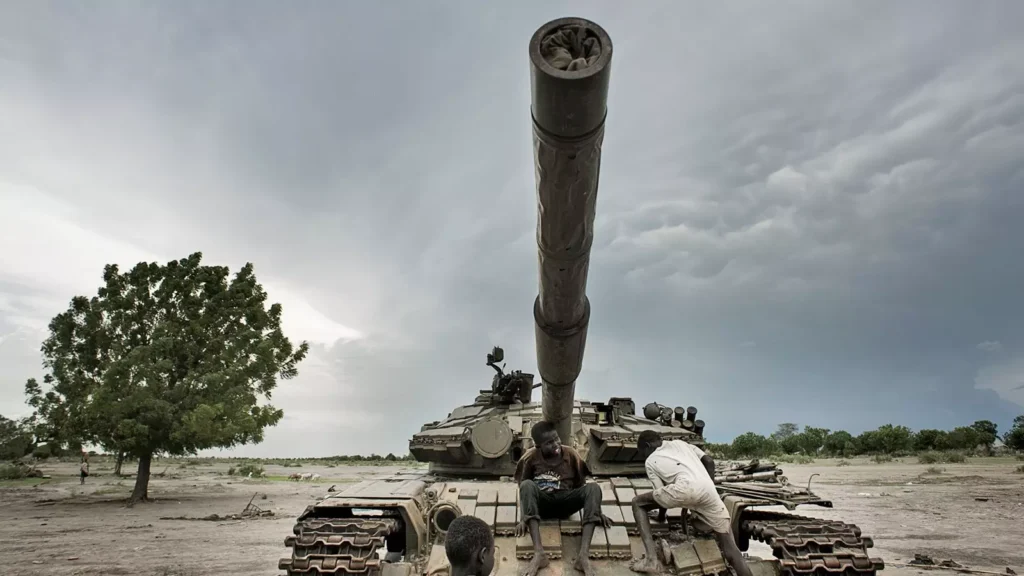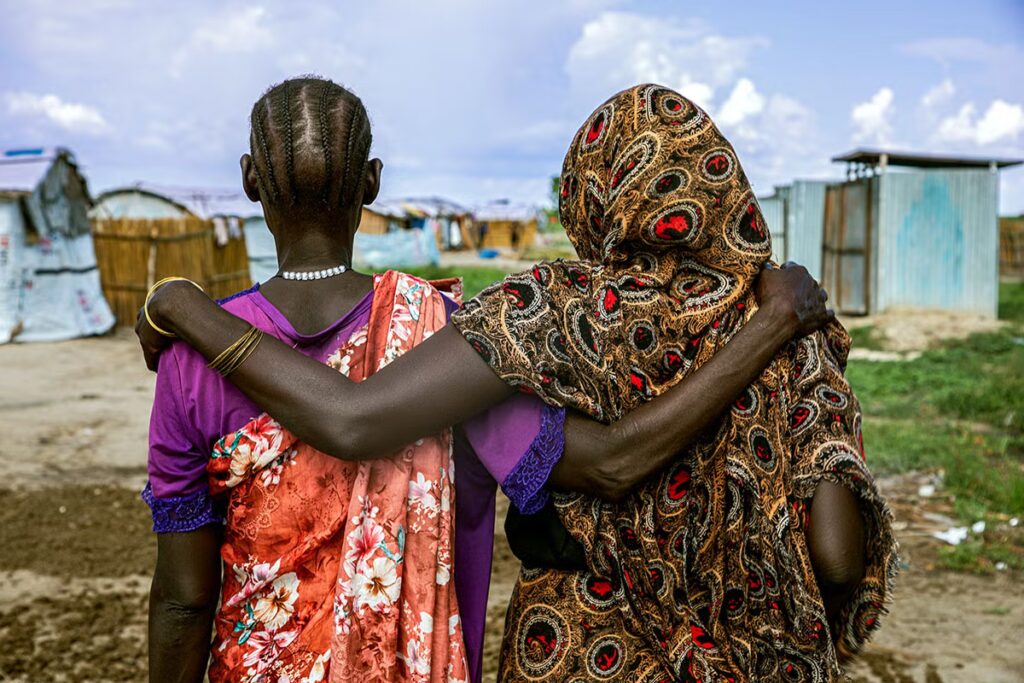The establishment of the Hybrid Court for South Sudan (HCSS), a critical mechanism under the 2018 Revitalized Peace Agreement, remains stalled despite growing calls for justice from conflict victims.
The Hybrid Court for South Sudan is an AU-led hybrid court which will have the mandate to investigate and prosecute individuals bearing the responsibility for the serious crimes committed since 15 December 2013 in South Sudan – including the deliberate killing of civilians, rape and other sexual violence, forced recruitment of children, forced displacements, among other crimes.
The decision to establish the Hybrid Court was taken through the 2015 peace agreement signed by the Government of South Sudan and the Sudan People’s Liberation Movement/Army-In Opposition (SPLM/A-IO) and reiterated through the revitalized peace agreement (R-ARCSS) in September 2018.
Government officials and representatives of the African Union (AU) cite legal, procedural, and financial obstacles as reasons for the prolonged delay.
Michael Makuei, South Sudan’s Minister of Information, Communication, Technology, and Postal Services, attributes the delay to the AU’s failure to provide the framework for enacting the law that would establish the court.
“It is taking long because the formation of the Hybrid Court is not in our hands. It is the AU that is supposed to give us the terms and conditions for the enactment of the law,” Makuei said.
“The Hybrid Court will not come into being unless the government of South Sudan passes a law. The agreement states that the AU must provide the terms and conditions, but they have not yet given us any,” he added.
Makuei explained that once the AU provides the guidelines, the Ministry of Justice would draft a Bill, which will then go through the legislative process before being signed into law by the President.
To South Sudanese waiting for justice, he urged patience. “They need to wait until these legislations are out.”
Prof. Joram Mukama Biswaro, the AU envoy to South Sudan, offered a broader view, emphasizing that the HCSS is just one part of a larger transitional justice framework. He highlighted that Chapter 5 of the peace agreement outlines three mechanisms: The Commission for Truth, Reconciliation, and Healing (CTRH), the Hybrid Court, and the Compensation and Reparation Authority (CPRA).
“These mechanisms are interdependent and must be implemented sequentially,” Prof. Biswaro noted.
He pointed out that significant progress was made when the South Sudanese government, in collaboration with the AU, held a conference on transitional justice in May 2023.
One of the key outcomes of this conference was the prioritization of establishing the CTRH and CPRA before moving to the Hybrid Court.
“The fact that the CTRH and CPRA have been passed into law paves the way for the Hybrid Court,” he said, adding that the AU has been drafting guidelines in consultation with the government.

However, Biswaro acknowledged the financial and logistical challenges. “This is a process. It has huge financial implications,” he said. “But it will be established, and it will reflect the interests of South Sudanese themselves.”
Prof. Biswaro stressed that the overall peace agreement implementation has been slow, affecting critical processes like security and constitutional reforms.
“The 2018 Peace Agreement has already seen the postponement of elections from December 2024 to December 2026,” he noted.
For South Sudan’s 2026 elections to be credible and inclusive, the country must complete the constitutional-making process, which is linked to transitional justice mechanisms. Without a functional judicial system to ensure accountability and uphold the rule of law, elections could face legitimacy concerns.
Victims of South Sudan’s conflicts continue to demand justice. Biswaro acknowledged these frustrations but urged patience.
“There is a legal dictum that justice delayed is justice denied,” he said. “But history shows that justice, even if delayed, will eventually be realized.”
He also highlighted alternative justice mechanisms that could complement the Hybrid Court, such as the Gacaca courts in Rwanda and customary approaches in West Africa.
While the AU has no specific deadlines for the court’s establishment, Prof. Biswaro insisted that the issue remains on the table.
“Good things take time,” he said, “but South Sudanese must continue demanding their rights and holding authorities accountable.”
Makuei reaffirmed the government’s commitment to transitional justice but maintained that South Sudan should not be pressured by external actors.
“We must implement the peace agreement in our own way and in our own time,” he said.
Prof. Biswaro emphasized that the AU is still engaged in discussions with South Sudanese authorities to ensure the establishment of the court. He called on civil society, victims, and international partners to continue advocating for accountability.
James Bidal, the coordinator for the South Sudan Human Rights Defenders Network, also expressed concern.
“The delay in establishing the hybrid court has severely impacted victims, many of whom continue to suffer from trauma, displacement, and loss without any acknowledgment. Justice is not about punishing perpetrators. It is about recognition, healing, and ensuring non-recurrence. But the prolonged inaction has left victims feeling abandoned, reinforcing a culture of impunity where their suffering is ignored. Many have lost faith in the possibility of accountability, making it harder for them to rebuild their lives. Without the court, perpetrators remain unpunished, discouraging victims from participating in truth and reconciliation efforts.”
He added: “The Compensation and Reparation Authority has been stalled, leaving victims without redress, while public trust in the peace process has weakened due to perceived government inaction.
The entire responsibility for establishing the hybrid court of South Sudan lies within the transitional government of national unity, which has deliberately obstructed progress, including its inability to sign the required Memorandum of Understanding with the AU.
“The African Union also shares blame for not taking decisive action despite having the authority to establish the court unilaterally.”
As South Sudan approaches its new transitional period, the establishment of the Hybrid Court remains crucial for ensuring accountability and fostering trust in the peace process.




